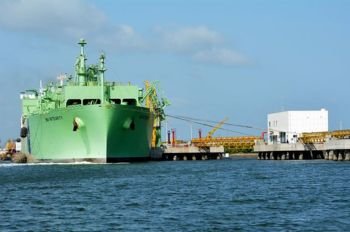Port Qasim climbed 35.2 points in the World Bank’s CPPI 2024, placing ninth among the most improved ports worldwide.
Government hails recognition and links gains to reforms, technology, and stable operations
Federal Minister for Maritime Affairs Muhammad Junaid Anwar Chaudhry called the ranking a matter of national pride.
He credited sustained reforms, modernisation, and the adoption of global best practices for the performance jump.
In his words, the inclusion of Muhammad Bin Qasim Port among the top performers reflects a clear plan to raise efficiency and reliability.
He added that the ministry remains committed to making the maritime sector a strong contributor to national and regional trade.
As evidence of that commitment, the ministry has approved a long delayed dredging project to deepen the channel and receive larger vessels.
Public and private partners share credit as Port Qasim improves faster ship turnarounds, and better schedule integrity
Chaudhry praised private operators, with a special mention for DP World’s Qasim International Container Terminal.
He said their management helped maintain operations at international standards.
Port Qasim Authority Chairman Rear Admiral Moazzam Ilyas, retired, echoed that view and praised the workforce. He said the team will continue to invest in innovation, digitalisation, and core infrastructure.
With a deeper channel and upgraded equipment, officials expect fewer bottlenecks, faster ship turnarounds, and better schedule integrity for carriers and shippers.
Rising performance supports Pakistan’s plan to serve as a logistics bridge across regions
The minister said the recognition arrives as Pakistan positions itself as a logistics corridor that links the Middle East, Central Asia, China, and other markets.
In parallel, Karachi and Gwadar ports are moving through modernisation programs, which strengthens national capacity as a whole.
Better port performance should attract foreign investment and give exporters and importers more reliable and cost efficient options.
Looking ahead, the ministry plans to integrate ports with inland transport networks, expand digital systems, and embed environmental safeguards.
In the minister’s view, this ranking marks a beginning and sets the tone for growth, integration, and prosperity.




